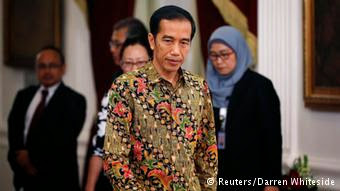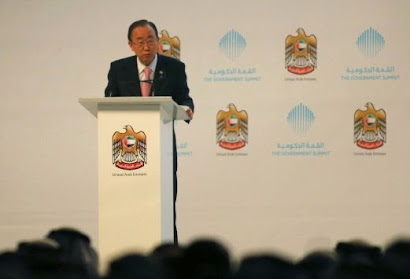Hopefully you have already heard about the “Visit Museum Year 2010” campaign, launched at the end of 2009 and aimed at increasing the public’s appreciation of Indonesian museums as part of the country’s heritage.

JP/TARKO SUDIARNO
But you may not know that the idea to promote museum visits came from Thomas Haryonagoro, who cut through meters of red tape to get the campaign started.
Every time he passes the largest traditional market in Yogyakarta, Beringharjo, and the Vredeburg Fort beside it, Thomas Haryonagoro feels concerned. He always imagines the two icons of Yogyakarta with the mindset of a museum activist.
Thomas Haryonagoro, who has managed the Ullen Sentalu Museum of batik for decades and is now chairman of the Museum Consultative Board (Barahmus) in Yogyakarta, cannot help but compare the price of the admission ticket for Vredeburg Fort Museum and the toilet service fee at Beringharjo.
“We’re charged Rp 1,000 for using the toilet in Beringharjo, while seven hundred and fifty rupiah is enough to enter Vredeburg. So it’s definitely cheap to go to the museum”, Thomas pointed out.
The low-ticket price, Thomas went on, should attract visitors. In reality, however, not many people go to the museum. The same can be said for museums around Indonesia.
The small entrance fee also indicates museums are not managed seriously, because proper management would require considerable funds, while government allocations are insignificant. Therefore, museums in the country are not very well looked after, making them unattractive.
The government’s lack of vision for Indonesia’s museums doesn’t help either, said Thomas Haryonagoro, also chairman of the Indonesian Museums Association.
If there was a proper strategy to manage museums across the archipelago, “managers of private and state museums would apply the International Council of Museums’ minimum standards for museum management.”
But without the government setting such standards, and each museum being managed separately, virtually no progress has been made to make museums more enticing to the public, Thomas noted.
So along with several other concerned parties, Thomas decided to lift museum management standards in Indonesia.
The “Visit Museum Year 2010” campaign proposal was one of Thomas’ initiatives to lift the profile of Indonesian museums. But without a museum background, the tasks Thomas gave himself felt gargantuan. He admitted his attempts to develop museums in Indonesia had not been as fruitful as expected because many programs faced central and regional bureaucratic snags.
Last year, Thomas smiled quietly when he heard one of his peers make fun of his campaign slogan: “Museums in my heart”. His friend added the slogan was unrealistic given how Indonesian society perceives museums. “He is right. Our society doesn’t appreciate museums. Actually, in developed countries, museums are the main tourist destinations and have become historical laboratory centers where civilizations and cultures can be observed.”
Whereas here, he went on, museums tend to be places where problematic officials are assigned. They are sent to museums where “lucrative” projects do not exist.
“Sometimes I lose hope, but as museums have become part of my life, I’m trying to console myself by recalling foreign authorities who have often paid special attention to Ullen Sentalu. Foreigners show much more appreciation for museums than locals,” said Thomas, who since the 1980s has run the batik museum with his family in Kaliurang, a tourist area at the foot of Mt. Merapi, Yogyakarta.
Thomas inherited his passion for batik from his family, who ran a thriving batik business called Berlian in the 1950s. Besides producing its own batik, Thomas’ family also collects batik from different regions.
This love of batik motivated Thomas and family to establish a museum to showcase their collection of batik to the public.
The museum’s name, Ullen Sentalu, is an abbreviation of the Javanese phrase “Ulating Blencong Sejatine Tataning Lumaku”, which means the true light of human’s path of life.
With that moniker, Thomas, 54, aimed to imbue museum visitors with inspiration. Even though Ullen Sentalu charges visitors a high fee compared to other Yogyakarta museums, people are entertained and enlightened with knowledge.
Ullen Sentalu can serve as a model that meets the standards of the International Council of Museums.
Managed without much promotion, the museum focusing on Yogyakarta and Surakarta cultural values attracts many foreign officials and tourists, despite receiving very little attention from the government.
“Since the 1980s, we’ve never received any assistance from central or regional governments,” said Thomas Haryonagoro, who is still wondering when Indonesia’s 272 museums will be the pride of the nation.






No comments:
Post a Comment